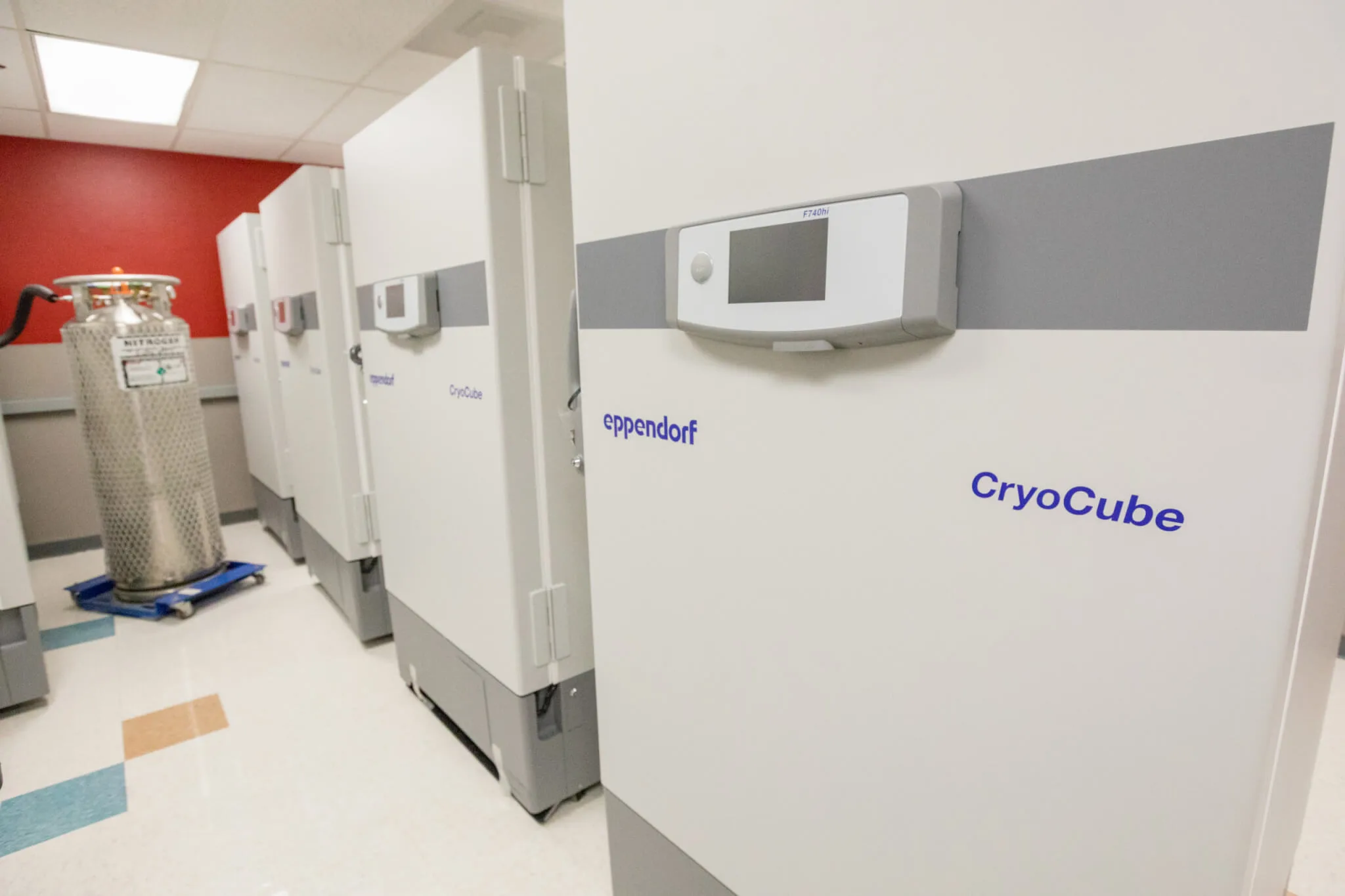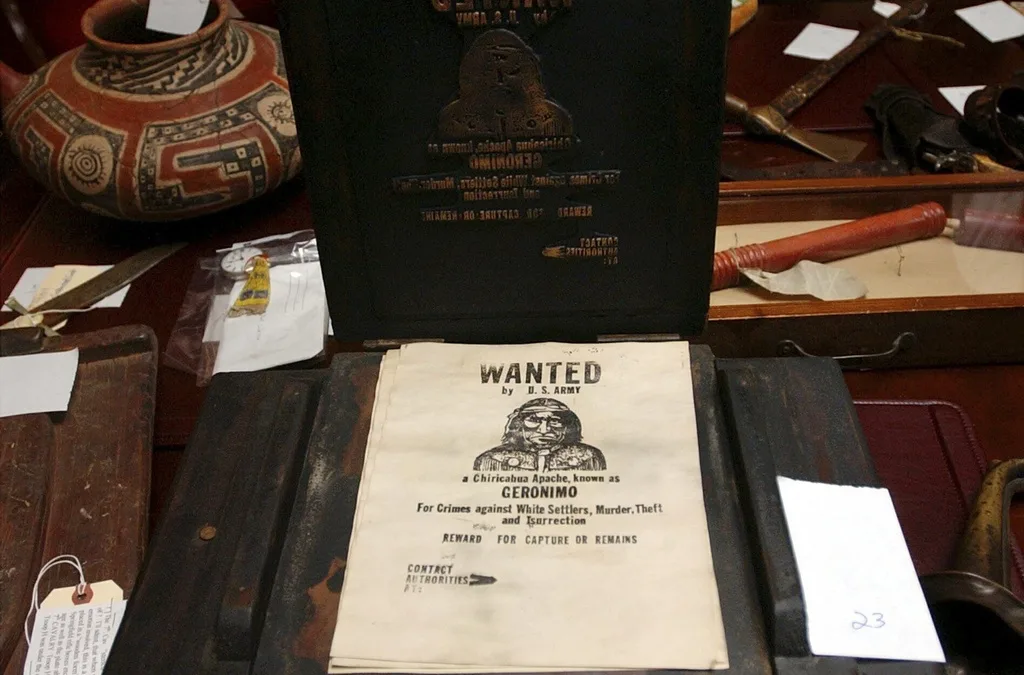
Photo courtesy of University of Arizona
The university’s freezers can hold an average of 140,000 doses or approximately 1.6 million doses in total.
The first COVID-19 vaccines arrived in Arizona earlier this month and began to be distributed across the state on Thursday, signaling a new phase in the fight against the virus.
Approximately 58,500 doses were initially distributed to Maricopa and Pima counties during the first week, with Maricopa County receiving the bulk of the doses.
But more doses are on the way, and the University of Arizona has already assembled infrastructure to house them.
The COVID-19 vaccine, manufactured by Pfizer and BioNTech, uses messenger RNA, or mRNA, which gives directions to the body’s immune system on how to fight COVID-19. The vaccine, which was granted emergency authorization last week, is the first licensed mRNA vaccine in the United States.
But mRNA technology is fragile and can easily fall apart, so the Pfizer vaccines must be stored at freezing temperatures of minus 70 degrees Celsius. Another vaccine from drugmaker Moderna must be stored at minus 20 degrees Celsius.
That’s where UA stepped in.
Spencer Graves, the logistics manager for the Pima County Health Department, said the county has an agreement with the university to use them for public health preparedness and contacted them in March, “literally as soon as we found out a pandemic was happening,” to prepare.
Dr. David Harris is the executive director of UA’s Health Sciences Biorepository, which collects, processes and stores biospecimens from various clinics, including from COVID-19 patients.
The biorepository, which serves as a central hub for research and data, store samples in a temperature-controlled environment, which routinely uses freezers operating at the temperatures needed to house the COVID-19 vaccine, according to Harris.
Harris said it was a “logical extension” for UA to store the incoming vaccines. On a day-to-day basis, hospitals aren’t necessarily storing large amounts of drugs or vaccines for a long period of time, he said.
“At a university, that is what we do,” Harris said.
Round-the-Clock Security
While a freezer farm may evoke an image of miles of freezers spanning acres of space, UA’s freezer farm is essentially a big room with nothing but freezers in it — or in this case, freezers filled with nothing but vaccines.
The farm is currently made up of 10 freezers: seven will be used for the Pfizer vaccine and three for the Moderna vaccine, whose temperatures are more in line with a household freezer someone would use to stock their ice cream, according to Harris.
Each freezer will hold an average of 140,000 doses, or approximately 1.6 millions doses in total, Harris said.
“We hope to never see that because we hope as it comes in, it goes out pretty quick so people can get vaccinated,” he said.
But with such a valuable payload, the freezer farm will also be closely monitored.
Ahead of the vaccine delivery, rumors swirled about a potential effort to waylay the vaccine and create a black market to sell them because of their high demand, according to Harris.
On Friday, the L.A. Times reported that wealthy people were offering tens of thousands of dollars in cash and considering making five-figure donations to hospitals in order to receive the vaccine early.
The university is already under lockdown as a result of restrictions put in place to curb the spread of the virus, but the freezer will see even more limited access. Entrance to the facility requires a keycard and a keycode, and no one will be able to enter the facility alone: at least two people with their own keycard and keycode must enter the freezer together.
Some of the specimens were also collected years ago and need to be maintained for the next decade or more, so safeguards are put in place to make sure there are no large temperature fluctuations, even in the event of natural disasters, Harris said.

The freezers are plugged into uninterruptible power plugs that will supply power through emergency generators in the case of a power outage, Harris said. The university went one step further and integrated emergency liquid nitrogen tanks that would kick in if the plugs were to fail.
In addition to closely monitoring the temperature of the freezers, the university will keep tabs on who is coming in and out of the freezers with cameras inside and outside.
“That’s monitored 24/7 to make sure that no one comes in who shouldn’t be in there,” Harris said.
The level of security is also necessary because biorepository staff work with specimens containing not only coronavirus, but HIV, hepatitis and other infectious viruses, so access is limited to lessen the risk of exposure, Harris said.
Careful monitoring of the vaccine storage is important to make sure doses don’t go missing.
“It’s just better safe than sorry,” Harris said. “Better to have it and not use it than to need it and not have it.”
When Will Vaccines Come to the Freezer Farm?
The freezer farm was not tapped to house the initial doses of the Pfizer vaccines that arrived last week, according to Harris.
Graves said Pima County had received just under 12,000 doses of the vaccine during the first distribution week, with 19,000 more expected this week.
Banner University Medical Center and the Tucson Medical Center, which will serve as the county’s initial points of dispensing, also have freezers on site to store the vaccines, although not at the same capacity as UA, according to Graves.
Healthcare professionals began receiving their first doses of the vaccine from Banner University Medical Center in Tucson on Thursday.
Harris said the university doesn’t expect to be involved in storage until this week or the week after, when hundreds of thousands of doses will be shipped.
“[Vaccines] that are coming in are being used immediately so there’s really no need for any long-term storage,” he said. “There will be when we get hundreds of thousands of doses that should start coming in next week and the week after.”
But governors in several states began raising concerns last week that the shipments of vaccines promised for this week could be reduced, some by up to 40%, according to the Associated Press. Pfizer CEO Albert Bourla said in a statement Thursday that there were millions of doses waiting to be shipped, but that the company had not received any shipment instructions for additional doses.
Harris said the arrival of the vaccines gave him hope that by next summer any resident who wanted to be vaccinated could be vaccinated, signaling a new phase in the battle against a virus that has killed 7,972 Arizonans as of Monday.
Until then, Harris had just one more piece of advice for residents waiting their turn to be vaccinated.
“Now that we’re so close to everybody getting the vaccine, be patient,” he said. “Don’t do anything stupid.”
Politics

The Civil War raged and fortune-seekers hunted for gold. This era produced Arizona’s abortion ban
Arizona's 1864 code elaborately describes restrictions on duels, ruling any person involved in the fighting of a duel would be imprisoned for one to...

VIDEO: Arizona Gov. Katie Hobbs calls 1864 abortion ban ‘absolutely outrageous’ on ‘The View’
@coppercourier Former President Donald Trump and US Senate candidate Kari Lake have both attempted to cover up their support for total abortion bans...
Local News

Trump says he’s pro-worker. His record says otherwise.
During his time on the campaign trail, Donald Trump has sought to refashion his record and image as being a pro-worker candidate—one that wants to...

VIDEO: Hundreds show up in Scottsdale to support reproductive rights
@coppercourier Days after the Arizona Supreme Court ruled to enforce a long-dormant law that bans nearly all abortions, hundreds took part in a...




